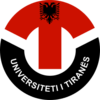Economic and social development are widely affected by the impacts of climate change. It is of critical importance that higher education system contribute to building capacities and interdisciplinary knowledge for a sustainable and resilient society, able to build back better our vulnerable economies. Investors, insurers, businesses, cities and citizens across the EU and the Balkans should be able to access data and to develop instruments to integrate climate change into their risk management practices. This proposal is relevant to the objectives and activities of the CBHE action and specificities of Strand II. It is based on identified needs analysis performed in each of the target countries of Region 1 and of the target groups and final beneficiaries. The wider aim and the specific objectives of the project are in line with “Green Deal” EU overarching priority, as a project that supports action within higher education systems for creating climate resilient communities.
Climate action and sustainability are set as priorities of WB governance. Leaders from Western Balkans, gathered in Sofia in 2020, at the WB Summit acknowledged the need to set the basis for a major transformation of WB region that would turn sustainability and resilience challenges into opportunities and transpose elements of the European Green Deal in all interrelated priority sectors. Among other issues, they agreed to develop a plan for economy-specific and regional awareness-raising activities, reflecting the Green Agenda for the Western Balkans in the reforms of the education systems. Therefore, the HEI curricula across WBC should embrace the issues of green economy, climate change and sustainability in order to implement and develop the institutional reforms and to satisfy the requirements of the labour markets in the future. It is widely recognized that education is key to positively affect behaviours regarding the environment, starting from an early age. By reforming curricula and raising awareness within WBC communities, the youth of the region can contribute decisively to the implementation of the Green Deal Agenda and building a regional higher education area in the field of climate, sustainability and resilience.
Addressing these observation, and based on a sound needs analysis, this proposal deems the inclusion of Green Deal Goals into the WBC HEIs agenda as a necessity. The progress will be achieved through the revision and improvement of existing courses programmes, provision of short intensive courses to students and practitioners, development of new lectures materials, training of teaching staff and encouraging the research work in climate and sustainability. Furthermore, positioning university research in strategic areas of development can help inform good policies and find sustainable social, economic, environmental and technical solutions to today’s problems. Considering the collaboration with the business sector as the key for achieving long-term sustainable goals, a joint collaboration platform, uniting student, staff and business communities within the Western Balkan countries, is planned to be created within the project under the name 1Future Platform. The platform will give access to decision makers in government, business, and society, offering this way transversal knowledge and skills required to shape the future through embracing a climate resilience culture. The wider aim of the project is to improve regional capacities in implementing Green Deal goals within higher education system, initiating an action towards environment, climate change, sustainability and resilience. Achievement of this aim requires the involvement of all stakeholders, gathered under a holistic approach. Regional cooperation provides the opportunity for tackling common problems and for sharing knowledge and transferring good practice. In line with the broader integration goals of WB countries to the EU, the support from EU funding and the cooperation of HEIs from the EU Member states or third countries associated to the programme is essential in capturing the full potential of the proposal.
Views: 325



